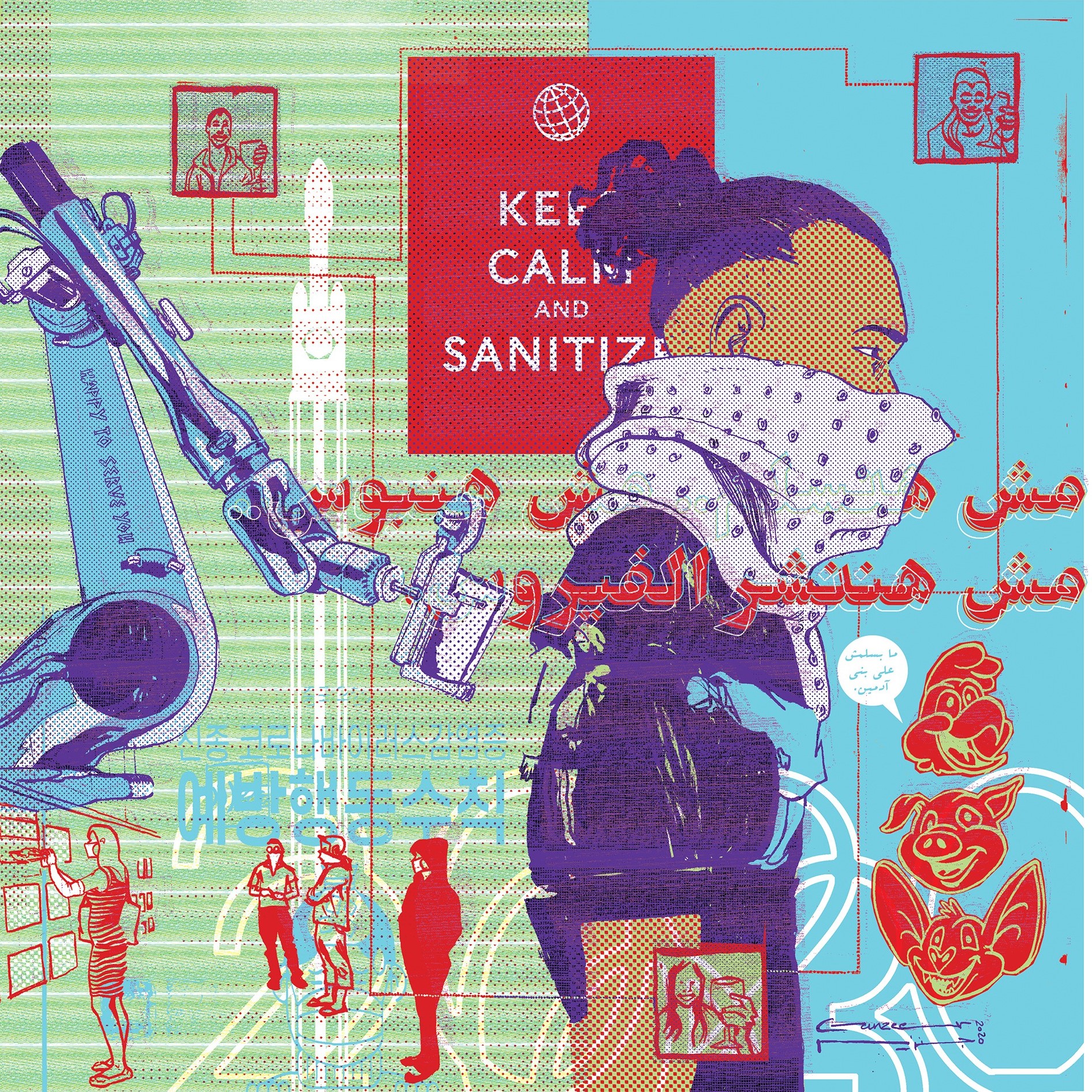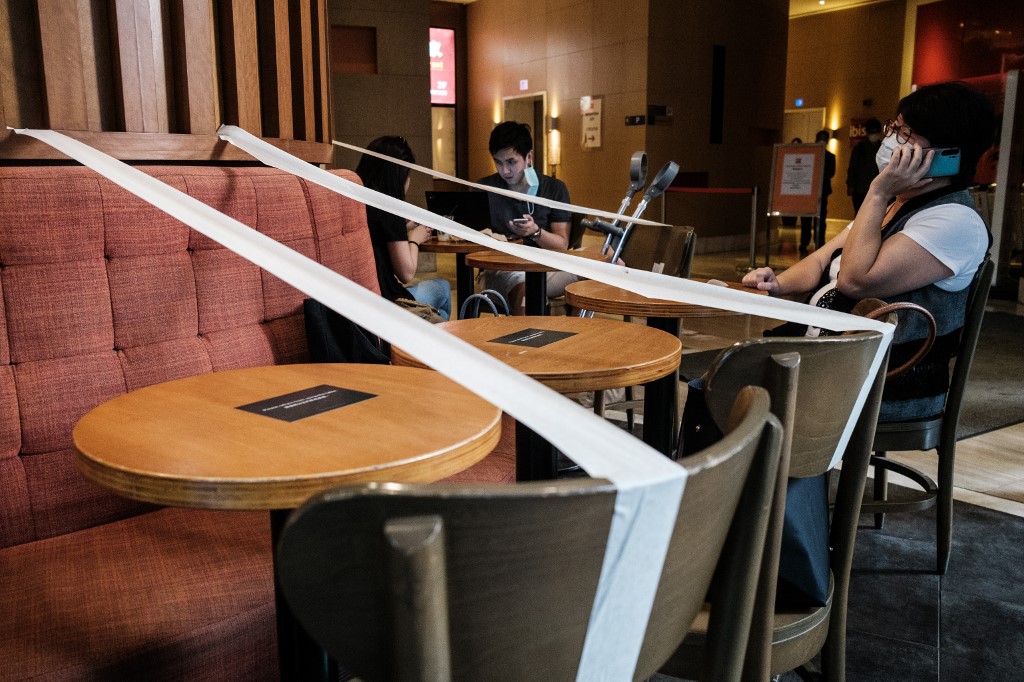Coronavirus: The end of the world as we know it

One person contracts a virus in China, and the next thing you know, flights are halted worldwide, cities go into lockdown, and more than 348,000 people are dead. Nothing could make it more clear that we live within a single unifying ecosystem. As such, new equalising systems of global cooperation are not only timely, but necessary.
Yet, on 14 April, US President Donald Trump saw fit to stop funding the World Health Organization. EU member states have shut their borders for the first time in decades. State leaders around the world have expanded their authority to questionable autocratic levels.
The optimists among us would like to think these measures are temporary - weeks at best, but it would be foolish for anyone to assume that life can carry on the way it did before Covid-19. Experts say developing a vaccine could take 18 months at minimum, and then there’s the time it would take to disseminate it globally.
Thus, the optimistic vision of life under Covid-19 restrictions is two years at best: yet, two years of self-quarantine and halted economies will not work, so we must start envisioning how our world can operate, and even thrive, in this new reality.
The new work environment
Working remotely was already on the rise, thanks in no small part to advances in telecommunications technologies. It was becoming so popular that dedicated co-working places started popping up in many metropolitan cities around the world.
Yet, with the outbreak of Covid-19, such spaces will become obsolete. Home will become the new workplace, and more companies will have to design their entire operations around a mostly remote workforce.
As we wait at home for things to 'get better', robots will be seamlessly introduced into companies' operations
For jobs that cannot be done remotely, protective gear will be needed, not unlike industries that deal in hazardous substances. The safer, more socially acceptable approach would be to bring on the robots.
Smart warehouses operated by robots have already popped up, as have robot-operated bars. The development of driverless trucks and delivery drones was already underway. We can expect to see an acceleration in the development of robotics and a severe reduction in the jobs performed by humans.
We can also expect the transition to be relatively smooth, given that many people have already lost their jobs. It won’t be a situation of someone getting fired because a robot is taking their place. As we wait at home for things to “get better”, robots will be seamlessly introduced into companies’ operations.
Some will welcome this change as a hygienic and lifesaving measure, but not the millions who lost their jobs as drivers and warehouse workers.
The new going out
Sitting next to a stranger inside a theatre filled with more complete strangers? Forget about it. The movie theatre, restaurant and cafe as we know them can no longer exist.
They will all have to be redesigned with necessary social distancing measures in place: a strict cap on the number of patrons, fewer seats and tables distanced two meters apart, and perhaps a proliferation of booth-style seating - or perhaps even a return of the German-style automat (which already made a soft comeback in San Francisco).
Even then, frequenting such establishments would still be deemed a serious risk, so we can expect such activities to decline in popularity.
The new diet
Evidence suggests Covid-19 might have been transferred from a bat to a pangolin before making the jump to a human. Human interference brought these species together, and experts say that human behaviour, such as the destruction of natural habitats, has enabled the spread of novel diseases.
As knowledge of this becomes more widespread, we may see a rise in veganism. Those who cannot give up their carnivorous ways may be inclined to say goodbye to mass-produced meats and instead source their foods from small local farms they know and trust.
To adapt, big brands may have to transform their industrial facilities into mega-labs where meat is grown instead of raised. These will be touted as more hygienic, environmentally safe and cruelty-free.
The new urbanism
Public transit will be deemed hazardous, as the private automobile becomes the only thing that makes sense. Snarling traffic will soon be back for those who still have to travel to work.
Suburbs and gated developments will make a comeback as idyllic bubbles, and city centres will lose funding and investment, dismissed as dirty and dangerous. This will make them affordable to struggling classes again.
The diversity of city centres in the West, combined with the lethal threat cities harbour as viral cesspools, may rekindle false notions about race and disease, leading to an acute revival of white supremacy in the mainstream.
When it comes to travel, we’ve experienced a century of unprecedented progress. This will probably slow down, as travel is undertaken only when necessary. In the short term, airlines may start giving passengers mandatory gloves and face masks, but if that is not enough to keep coronavirus at bay, planes could be retrofitted with private cabins, making air travel very expensive and reserved solely for the elite.
Given that boats can accommodate more private quarters (and actual fresh air), we may see a resurgence in sea travel for non-business purposes. With most people working remotely anyway, this wouldn’t really interfere with their limited time off. If you can do the job from home, you can arguably do it on a wifi-equipped ship.
The new conservatism
Casual handshakes, hugs and kisses will be no more. Enter the Japanese bow. It may first start with a nod, but time may prove this too casual a gesture in front of a senior or someone worthy of more respect.
Promiscuity will be deemed too risky. We can expect relations to take a turn towards the conservative.
This has all happened before. Some people forget that before the Swinging Sixties, there were the Roaring Twenties. The three decades in between? Quite conservative. The 1980s also saw a resurgence of conservatism after the outbreak of HIV/AIDS. Such sexually conservative cycles frequently coincide with the spread of infectious disease.
The spread of disease on a wide scale has always brought about the racist leanings already harboured by human beings
During the Black Death, Europeans blamed the “miasma” carried forth by winds from the East and South (Ottoman lands). When an 18th-century American missionary stationed in Egypt witnessed Cairo’s 1781 plague, he concluded that it was brought in by a Jewish merchant and two African slaves.
The spread of disease on a wide scale has always intensified the racist leanings already harboured by human beings. With a marketplace in China pinpointed as the source of Covid-19, we can expect the reemergence of a cultural divide between East and West.
Everything “Eastern” will likely be seen by a greater number of Westerners as threatening, and the once-growing interest in Eastern cuisine, books and cinema will likely stall - even as Westerners paradoxically pick up other traits out of necessity (the Japanese bow, bamboo-made disposables, robots, etc).
The new frontier
More interest and funding will likely be put towards finding and developing a new human habitat away from Earth - be it on Mars or elsewhere - a “Plan(et) B” where portions of humanity could live and prosper, far from the many viruses on Earth threatening to kill us at any moment.
Whether or not we will see these exact changes is debatable, but drastic changes are to be expected nonetheless. Some may be preferable to others, but whatever the case, it will be a world in which the next generation will thrive. After all, it will be the only world they’ll ever know.
The views expressed in this article belong to the author and do not necessarily reflect the editorial policy of Middle East Eye.




0 Comments:
Post a Comment
Subscribe to Post Comments [Atom]
<< Home